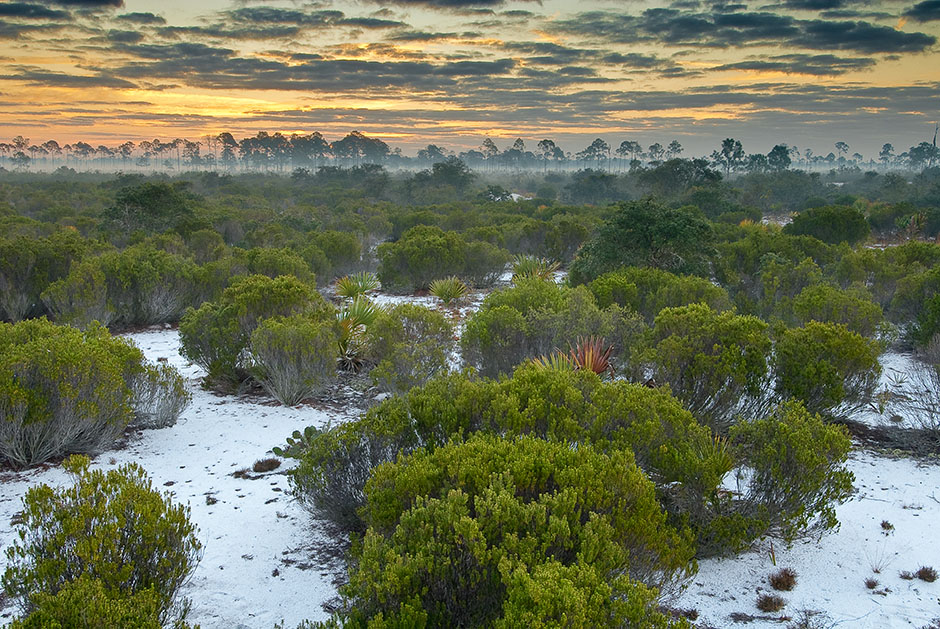Ecologists have long wondered how plants survive in stressful habitats. In many cases, plant species can effectively help each other out when environmental conditions are harsh. A new study by a group of ecologists at the University of Miami explores whether soil microbes are another factor that help plant species thrive in tough environmental conditions.
Plants often face many harsh conditions, from dryness to injury occurring when competing plants release chemicals into the soil, and when there is a lack of nutrients necessary to help plants thrive and grow. In the study, the team also tested the applicability of the Stress Gradient Hypothesis (SGH), an ecological theory that hypothesizes that as stress increases within an ecosystem, plant species develop mutually supportive interactions and reduce negative interactions. This is where the soil microbes come in.
“Basically, our study supports the SGH,” said Aaron David, lead author, ecologist, and a former postdoctoral researcher in the Biology Department in the College of Arts and Sciences. “As habitats become drier or more stressful, plant species often begin to help each other out. In ecology that’s referred to as a positive interaction. What we do in this study is to see how soil microbes are benefiting, or not benefiting, the Florida scrub plant species that they are associated with.”
In the world of ecology, there are decades of research associated with the Florida scrub, but far less about the microbial part of the scrub and the plant-microbe interactions that occur.
“What is so special about the Florida scrub is its high rate of endemism, which means many of its species are only found in Florida,” said Michelle Afkhami, co-author in the study and an assistant professor in the Biology Department. “The scrub is a part of our biological heritage, which makes it an especially exciting place to do research. It also naturally has lots of replicate stress gradients, which provides a great way for us to study how stress affects plant-microbe interactions.”
Using seeds of 12 species native to the Florida scrub that were collected from the Archbold Biological Station in Venus, FL, the team demonstrated that soil microbes alleviated stress for roughly half of the plant species tested, including several endangered plant species. The study also suggests that plant species persist in these habitats, in part, because of benefits derived from soil microbes. In essence, the study will improve ecologists’ understanding of how soil microbes aid plants in stressful habitats.
One finding that illustrated how the soil microbes assisted the scrub species was the promotion of seed germination for plant species that normally have low germination rates.
“Many of the low-germinating species that benefited from microbes tended to be the endemic, rare specialists. This is important when it comes to maintaining their populations and is important because many seeds don’t make it in such a stressful environment. The germination stage is crucial for a species’ life cycle, because it shows whether the species will persist or decline; microbial effects on that life-cycle stage are especially important,” said David.
Christopher A. Searcy, who is a co-author in the study and an assistant professor in the Biology Department, said the team is currently working on a study at the Archbold Biological Station where they will conduct “controlled fires in the scrub to see how they affect the microbial community. Overall, this current study builds a predictive framework for how microbes interact with and influence the distribution of plant species, which is fundamental in ecology.”
The study, “Do plant–microbe interactions support the Stress Gradient Hypothesis?”, is now available on the Ecological Society of America website.

